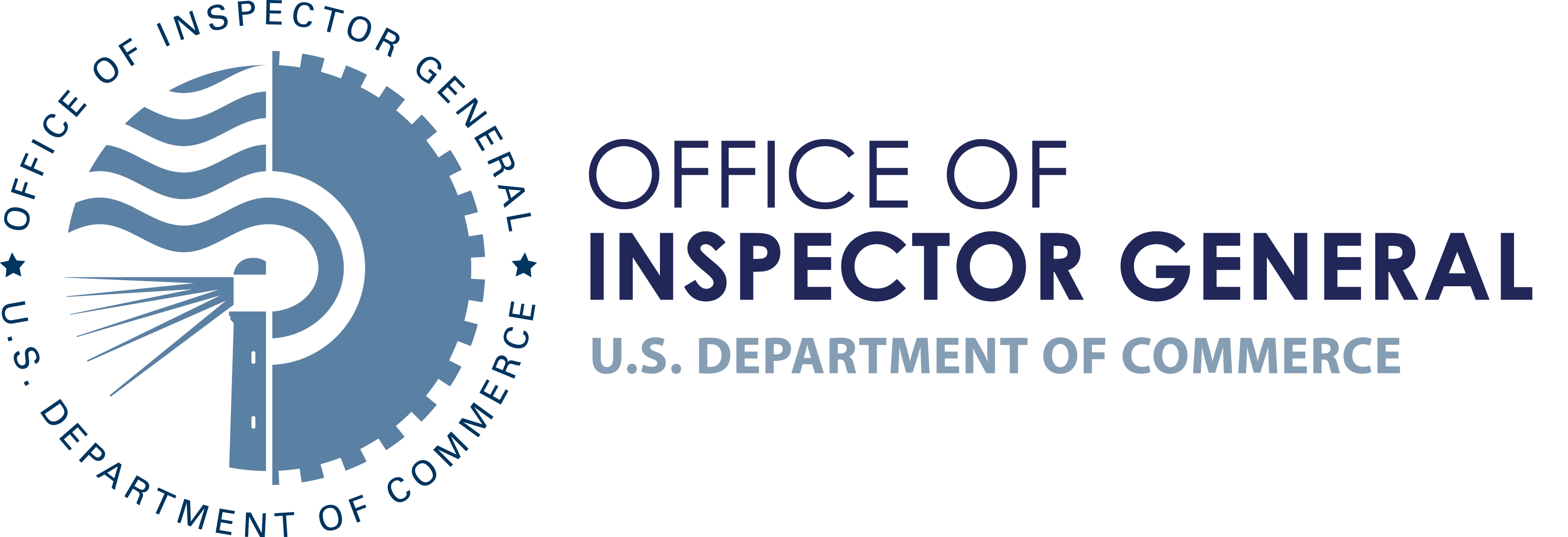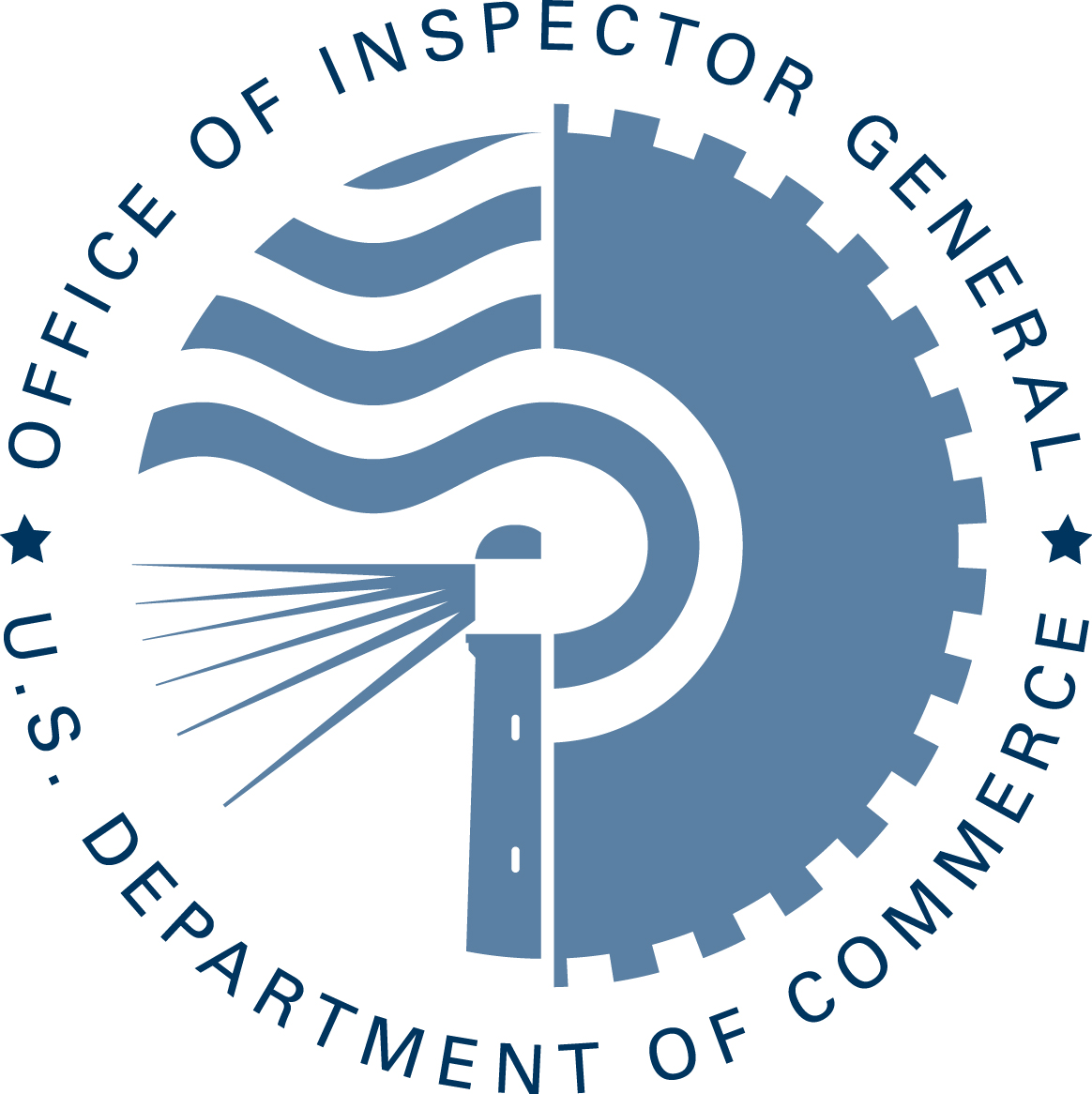FAQ about OIG Investigations
What to Expect: FAQs for Commerce Employees and Managers
Under the Inspector General Act of 1978, as amended, OIG is authorized to carry out both investigations and audits to “promote economy, efficiency, and effectiveness in the administration of [the Department’s] programs and operations; and … to prevent and detect fraud and abuse in … [the Department’s] programs and operations.” Through its investigative and audit findings and recommendations, OIG helps protect and strengthen Departmental programs and operations.
As part of our mission, we conduct investigations that involve employees, management officials, and affected Departmental programs and operations. OIG investigations can include criminal, civil and administrative matters.
This set of frequently asked questions (FAQs) is intended to provide Department of Commerce employees and managers with helpful information regarding the nature and scope of OIG investigative activities, as well as their obligations and rights in connection with OIG investigations. In the interest of transparency, we are providing these FAQs to promote greater understanding of our processes.
Q: What is an OIG investigation?
A: Generally, an investigation is carried out to resolve specific allegations, complaints, or information concerning possible violations of law, regulation, or policy. In contrast, an OIG audit or evaluation is conducted to examine organizational program performance or financial management matters, typically of a systemic nature. Employees should be aware that media reports sometimes characterize OIG activity as an investigation, when in actuality the activity is an audit or evaluation.
The results of OIG investigations may be used for administrative action by the Department and its bureaus, as well as for criminal and civil action by the U.S. Department of Justice (DOJ).
Q: What matters does OIG investigate and how do they originate?
A: OIG investigates a variety of matters, including allegations of fraud involving Commerce Department grants and contracts; improprieties in the administration of Department programs and operations; allegations of employee misconduct; and other issues concerning ethics and compliance received through OIG’s hotline. OIG also investigates alleged reprisals against whistleblowers within the Department, as well as its contractors and certain grant recipients.
OIG initiates investigations based on information received from a variety of sources, including: OIG's fraud, waste and abuse hotline; Department, GAO, and DOJ referrals; Congressional requests; and referrals from OSC regarding whistleblower disclosures. While anonymous complaints are accepted, they often present the greatest difficulty to investigate as there is not a person for OIG to contact for allegation particulars.
Q: Who conducts OIG investigations?
A: OIG is staffed with trained, credentialed, and sworn special agents (criminal investigators who are federal law enforcement officers) and administrative investigators.
Q: What is an employee's obligation during an OIG investigation?
A: Employees of the Department are required to cooperate fully with any OIG investigation, as prescribed by Department Administrative Order (DAO) 207-10, Section 6, and Department Organization Order (DOO) 10-13, Section 4. The OIG interprets cooperation as including being fully candid and forthcoming when interviewed and providing any requested records in the employee's possession or to which he/she has access. DAO 207-10, Section 2, makes clear that the Inspector General Act authorizes OIG to “have access to all records, communications (e.g., e-mail, voicemail, instant messaging), reports, audits, reviews, documents, papers, recommendations and other material available to the Department that relate to Department programs and operations.” OIG is authorized to access electronic records and data systems such as computers.
The OIG requires employees to provide accurate and complete information. To prevent even the appearance that they are withholding pertinent information or lying by omission, employees should avoid narrowly construing interview questions or record requests, and promptly provide requested records as well as other relevant information, even if not specifically requested. Even when only a general question or issue is posed, the employee should still respond with specific information they recognize as being potentially relevant.
Q: What are an employee's rights in connection with a criminal OIG investigation?
A: Employees may assert their Fifth Amendment right to refuse to provide information if that the information might be used against them in a criminal proceeding. An OIG investigation can result in a criminal proceeding only if DOJ accepts it for criminal prosecution. For a case that has been declined for potential criminal prosecution by DOJ, or did not require referral to DOJ, the employee may receive a written advisement to such effect and the employee must then fully cooperate with OIG. This effectively grants immunity against criminal prosecution based on the employee’s statements concerning the matter(s) covered by the advisement, unless the statements are found to be untruthful..
Q: Can an employee discuss an OIG investigation with non-OIG personnel?
A: If OIG contacts an employee concerning an investigation, that employee may inform his/her management of that contact. It is inappropriate, however, for the employee to discuss the subject matter of OIG’s contact with anyone else (other than his/her attorney), including his/her managers and other employees. If an employee is interviewed by OIG personnel or receives an OIG request for information, it is inappropriate for the employee to discuss the nature or content of the interview or request with anyone other than his/her attorney, including managers, other employees, other witnesses, or any party that is potentially involved in the investigation. Similarly, it is not appropriate for management to question such employees about OIG interviews or requests, including specific questions asked or the content of interviews. Such actions, by employees or their management, could compromise the investigation. Additional considerations may apply if the employee is a member of a union.
Management has a greater responsibility to avoid any action that could create a chilling effect on employee cooperation with OIG’s investigation. In order to protect witness confidentiality, preserve the integrity of OIG’s investigation, and other reasons (such as fairness and privacy considerations), OIG commonly requests that employees not discuss OIG interviews with their coworkers, subordinates, or supervisors. Thus, an employee’s obligation to cooperate with OIG’s investigation extends beyond the time during which the employee is interviewed.
Q: Can an employee decline to be interviewed?
A: With the exception of a situation as described above involving the Fifth Ammendment right against self-incrimination, employees are obligated to cooperate fully, which includes being interviewed. DAO 207-10 provides that employees “shall furnish sworn oral or subscribed statements upon request.” OIG cannot compel anyone to be interviewed; however, management can direct an employee to be interviewed as requested by OIG, and take disciplinary action if the employee declines.
Q: Can a Department attorney represent an employee during an OIG investigation or interview?
A: No. Government attorneys represent the agency only and may not act on behalf of an employee. An employee may retain a private attorney at personal expense for representation during an OIG investigation or interview. Consistent with current prevailing law, employees who are bargaining unit members may be permitted to have union representation present during interviews.
Q: How is an OIG interview memorialized?
A: Under Departmental directives DAO 207-10 and DOO 10-13, OIG investigators have authority to take sworn, written statements (i.e., affidavits). Additionally, pursuant to OIG policy, investigators may audio- or video-record interviews. Recording is to the benefit of all parties, because it ensures that a definitive record exists of both what was asked and the information provided in response. Pursuant to the above-referenced directives, employee cooperation extends to participating in audio/video-recorded interviews. As noted above, an employee's management can become involved if the employee declines to participate in a recorded interview.
Q: Can employees conduct their own audio/video recording of OIG interviews?
A: No. If interviewees wish to request transcripts of their recorded interviews, OIG has procedures by which such requests may be made and will be processed.
Q: What happens when an investigation is complete?
A: Generally, when an investigation is complete, OIG will produce a report based upon relevant witness interviews, records, and other evidence. The report will be reviewed within OIG to ensure that it is fact-based, objective, and clear. It will then be provided to appropriate individuals, including management, accompanied by recommendations as warranted, so that they may consider any appropriate corrective actions based on the results of OIG's investigation.
Employees may seek non-public OIG investigative reports by filing Freedom of Information Act requests with OIG.
Q: Will OIG reveal employee identities or the fact that they cooperated?
A: OIG investigators will respect the confidentiality of complainant Department employees as provided by law. Section 7 of the Inspector General Act (5 U.S.C. § 407) states that “[t]he Inspector General shall not, after receipt of a complaint or information from an employee, disclose the identity of the employee without the consent of the employee, unless the Inspector General determines such disclosure is unavoidable during the course of the investigation.” During the course of some investigations, it may be unavoidable that the identities of complainants will become known. However, OIG strives to protect the confidentiality of Department employees who contact the OIG to file a complaint. In addition, employees should be aware that reprisal against any employee for cooperating with OIG is forbidden by the Inspector General Act and DAO 207-10, Section 4. Further, OIG takes whistleblower protection very seriously and, along with the U.S. Office of Special Counsel, investigates alleged reprisals against employees for making protected disclosures to OIG.
Q: What professional standards apply to OIG investigations?
A: In addition to the Inspector General Act and the Departmental directives referenced above, OIG investigations are conducted in accordance with the Quality Standards for Investigations issued by the Council of Inspectors General for Integrity and Efficiency (CIGIE), and the Attorney General Guidelines for Offices of Inspectors General with Statutory Law Enforcement Authority. Further, OIG undergoes a CIGIE peer review every three years to assess its compliance with applicable standards.
Q: To whom may questions or issues about OIG's investigative process be addressed?
A: Any questions or issues may be addressed by email at OIGInvestigationsAdmin@oig.doc.gov


